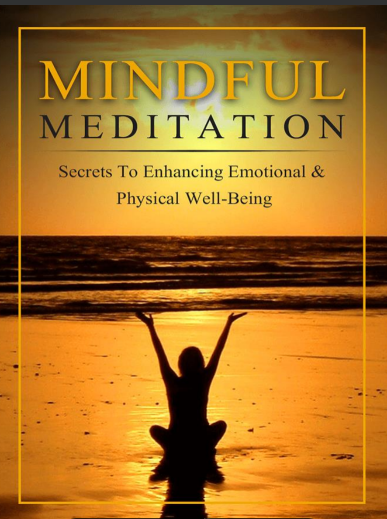Top 5 Tips for Writing an Effective Reflection Paper on a Book
Before you grab your laptop and start typing, one thing to inform you on: a reflection paper is not about summarizing the plot. This project is about connecting the book to your ideas, thoughts, experiences, emotions, etc. As a rule, this kind of academic project is assigned to high school and college students after they’ve watched a movie, read a book, or dealt with any other piece of visual or printed art. When you work on it, you deepen your understanding of the book under study and learn to express your thoughts more clearly. If the very assignment makes you freak out, we’re here to help a bit. Some tips below will help you create top-notch work or at least get the ball rolling.
#1 Read
Before you dive into the creative process, read the story from A to Z. If possible, do not rush. Take your time to read line by line to understand the key characters, themes, messages, hidden symbols, etc. We recommend taking notes in the process. Thus, you’ll have a pack of all those powerful quotes, reactions, questions, answers, and other ‘ingredients’ for a quality reaction paper. As you go through your piece under study, make sure to ask yourself, “Am I going to simply sum up?” The point here is that a reflection project on a book is not similar to any other college paper. In contrast to research articles, your reflection paper on a book doesn’t end at simply describing what happened to the main characters. Your task here is to dive as deep as you can to show why it matters to you.
#2 Pick a Focus
When the reading part is done, ask yourself what part of the book under study impressed you the most, or what idea you agree or disagree with. Or, perhaps, the book somehow changes your way of thinking? In other words, you have to choose a theme or idea that you’ll use as the cornerstone for your project. Keep in mind that the paper should be personal (let your emotional reactions go wild) or analytical, with your critical reflections activated.
When the job is done, and you have your a-ha! moment, make sure to check formatting (MLA, APA, etc.), length, and other specific requirements your professor gave you. If meeting all the requirements is a challenge, a trusted service can process your write my paper request immediately. Online professionals can explain all the nuances of the project and assist you in combating the writing block.
#3 Outline Your Reaction Paper
You can’t write a project if your thoughts aren’t properly structured. When it comes to the basic outline, it comprises the intro, the body (2-3 sections), and the concluding paragraph.
In the introduction, you should mention the title and author of the book, give a brief summary (2–3 sentences will do), and include your thesis statement. The latter includes your main reflection. For example, “The book '1984' by George Orwell made me more aware of how easily freedom can be taken for granted and how important it is to question authority, their decisions, and stay informed in our current cyber age.”
In the body of your reflection paper, you should write every paragraph focused on one key point or reaction. We recommend including specific quotes and examples taken from the book. Now, think of how exactly it made you feel and what kind of memories it gave you. Perhaps, it is somehow connected to your own life, the society you live in, or other books you have ever read.
Don’t forget to sum up your work. If the book somehow confirmed or changed your beliefs, let your readers know about it. If you think it’s going to influence your future beliefs, points of view, or actions, mention that too. Your readers will love it!
#4 Make Connections
When you work on your college reaction paper, your task is to prove a particular point. The whole project becomes more engaging for your target audience if it shows the connection between your personal experience and a bigger picture.
How about providing links to something bigger? Are you talking about the common struggle that a lot of individuals encounter at some point?
Connect it to something…simple. Sometimes a film, a work of art, another book, or a life lesson can help you provide readers with a deeper perspective.
Look ahead, if possible. Do you think this life lesson can actually change the way you think or deal with things in the (nearest) future?
#5 Include the Final Checklist
When you think your masterpiece is done, ask yourself if you’ve complied with all the demands:
Does your reaction paper include your personal thoughts and reaction(c)?
Is the piece properly organized and focused?
Did you include several examples from the book under study?
Is your prose free from grammar, style, punctuation, or any other mistakes?
How many words did you include?
Did you stick to the formatting guidelines?
The Dos and Don’ts for Writing Your Next Reaction Paper
Your task is to strike a balance between a highly analytical insight and personal reflection. Make sure to focus on the do’s and stay away from the don’ts given below.
The do’s:
Critically and carefully read the book;
Include a short summary (make it brief!);
Be honest in expressing your points of view (if you’re frustrated, let your readers know);
Always give examples, like specific scenes or quotes, to back up your statements;
Organize your content logically (imagine you’re the reader taking a look at your reaction paper for the first time);
Reflect on personal connections of the book to your life and values.
Here come the don’ts:
Don’t include blurred generalities like “The book is totally boring” or “I liked it very much” without letting your readers know why.
Don’t ignore the message from the author (if any), even if you don’t agree with them.
Don’t be too emotional since you’re writing a serious work. Remember the respectful tone.
Don’t steal opinions of others – have your unique voice at the core of the project.
Finally, don’t forget to polish up your piece to perfection. Proofreading is as important as writing itself. Check your work for mistakes and typos to ensure nothing distracts your readers.







